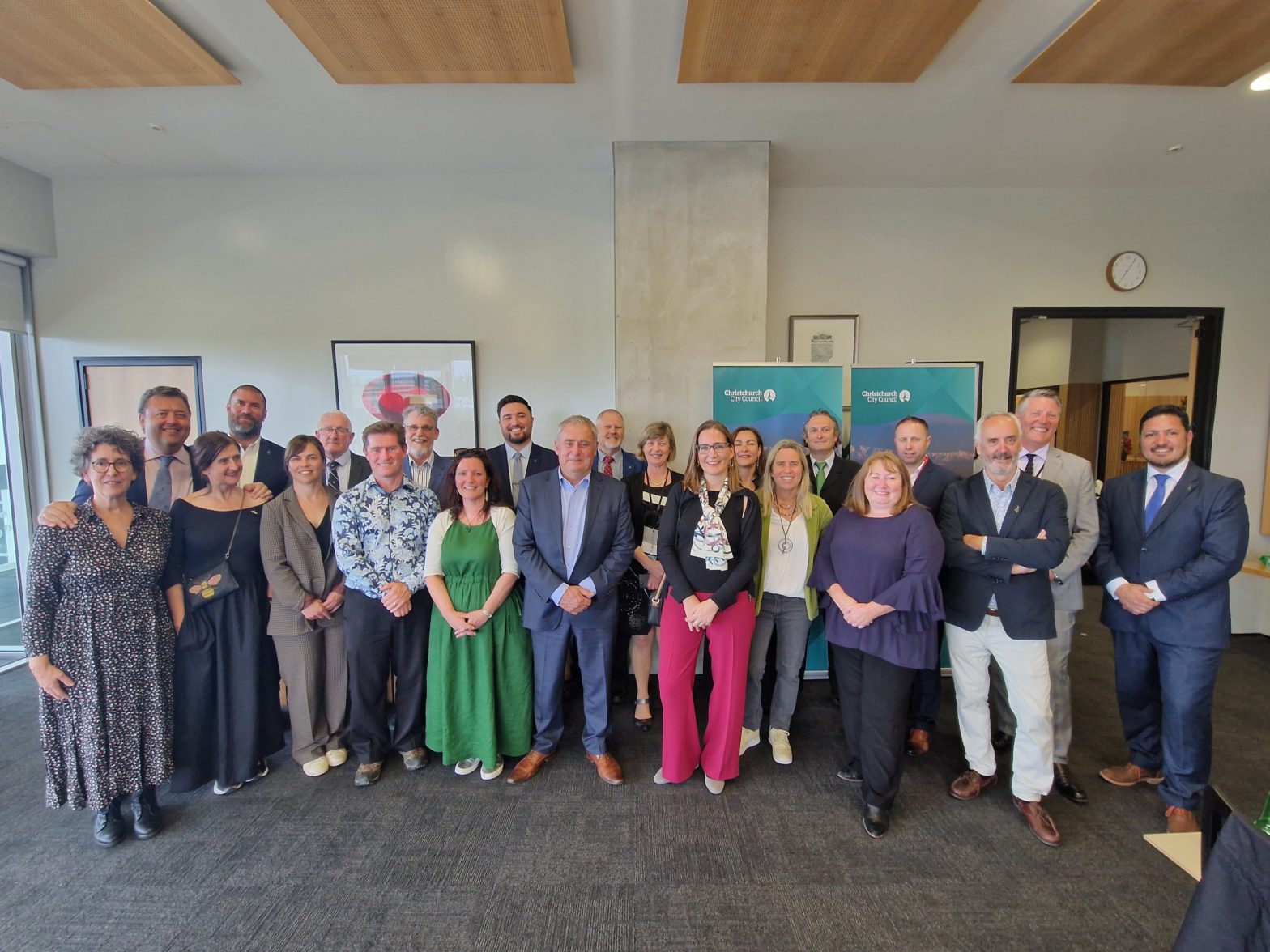Delegates from the Spanish cities of Málaga and Vitoria Gasteiz visited the New Zealand city of Christchurch to deepen pilot project cooperation in the fields of climate resilience, open innovation and citizens’ engagement. The mission aimed at deepening the results obtained during the preparatory online meetings as well as during the study visit of Christchurch to Málaga and Vitoria-Gasteiz in November 2022. As a result, city representatives discussed the implementation of concrete pilot actions involving the academic, research and private sectors when indicated.
The mission started on Monday 28 November 2022 with an introductory meeting in Melbourne devoted to exploring joint research possibilities on sustainable urban development with relevant departments of the Royal Melbourne Institute of Technology (RMIT) and to meeting partners from public administration (Melbourne City Council). Delegates undertook a walking tour of Melbourne’s City North Innovation Precinct.
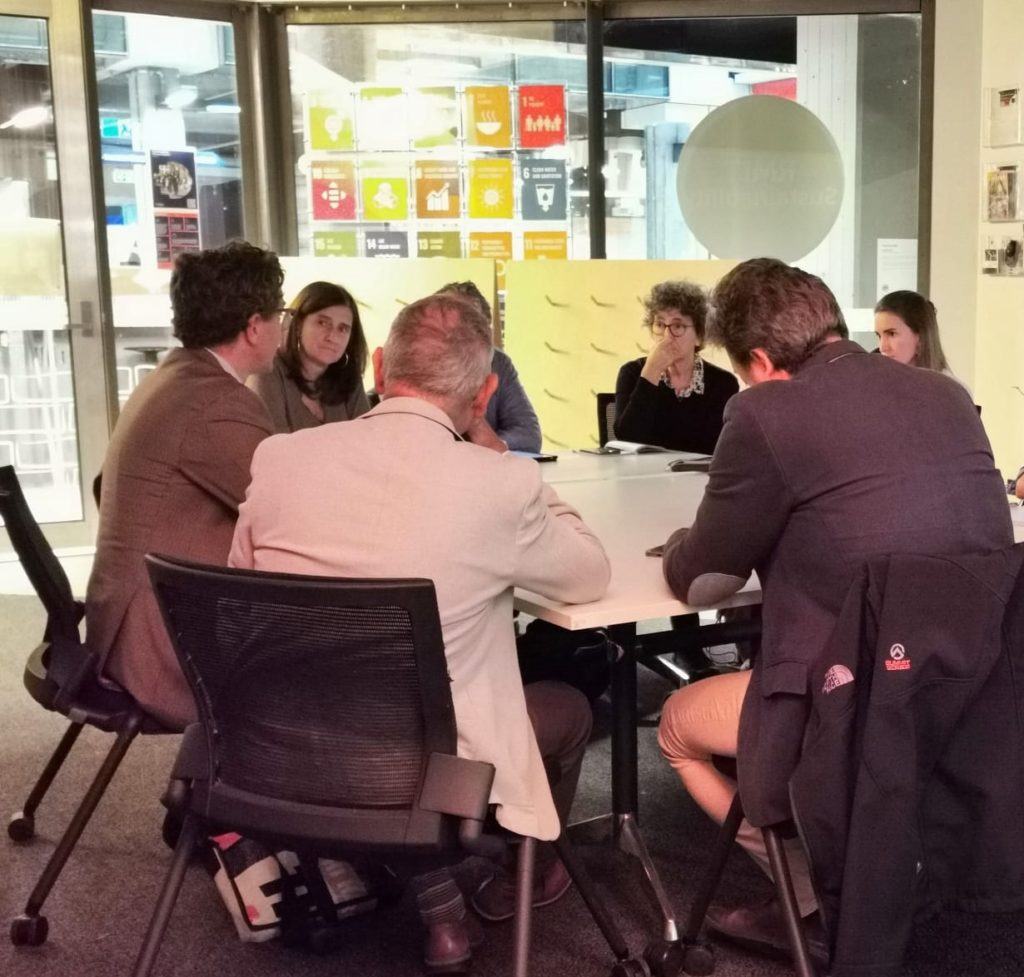
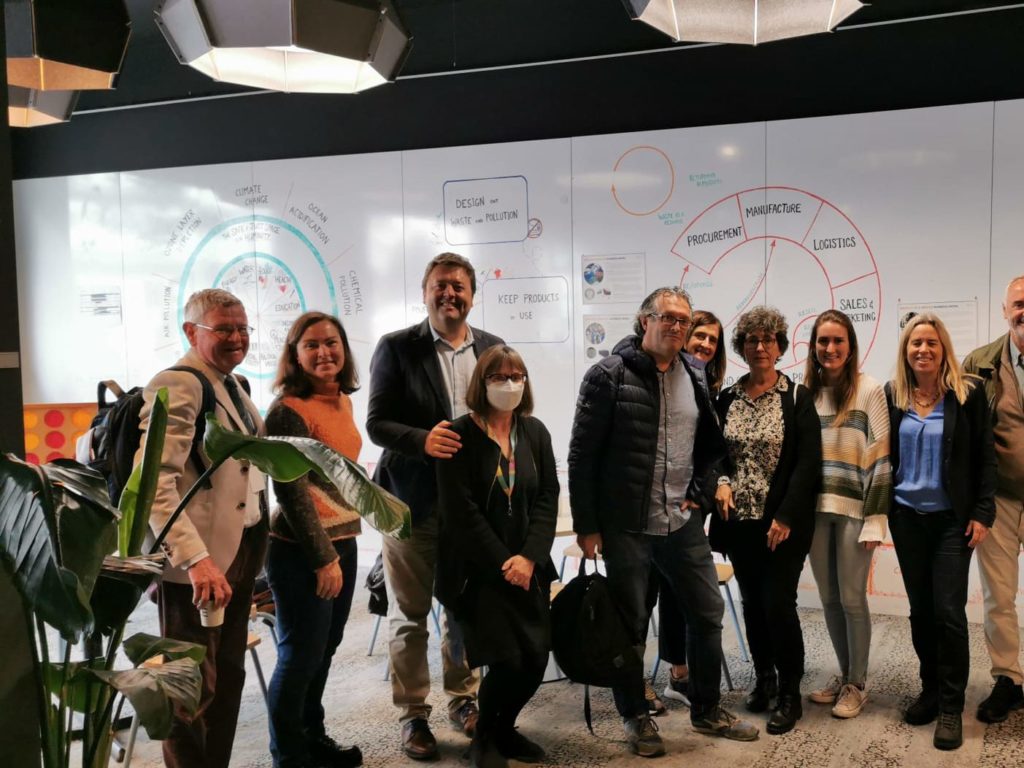
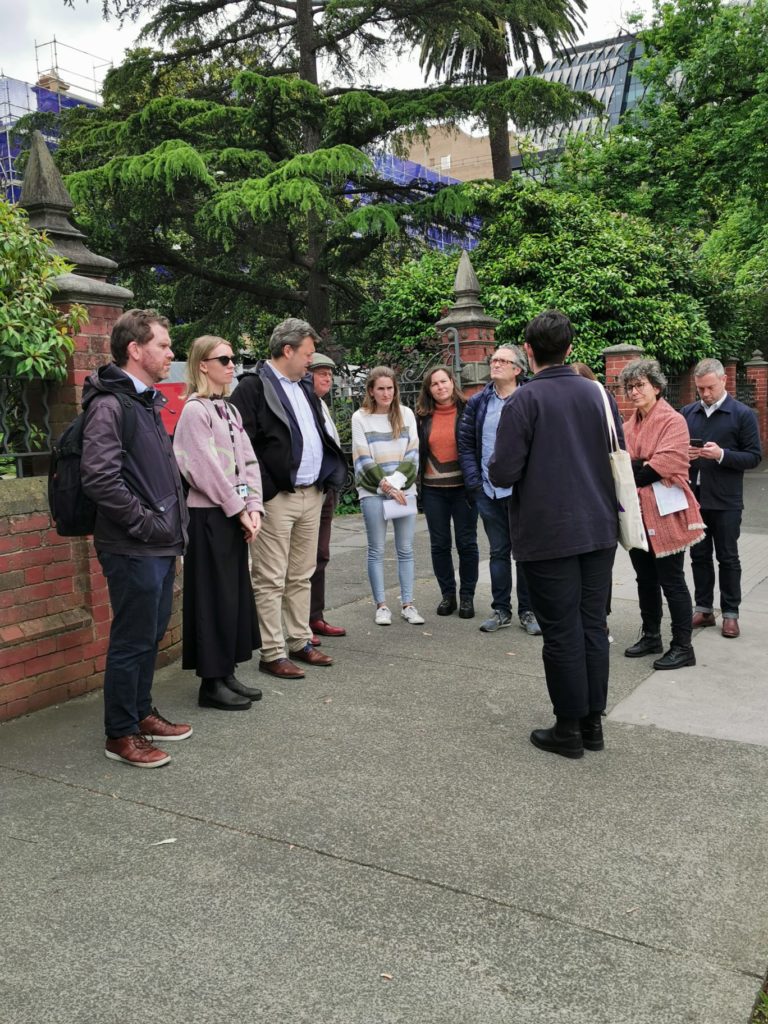
Meetings in Christchurch (Wednesday 30 November to Friday 02 December 2022) paved the way for future pilot-action cooperation. The agenda in Christchurch was agreed upon with the EU Delegation to New Zealand, whose Deputy Head, Kevin O’Connell, joined the mission on the last day. Activities were supported by Prof. Paul Dalziel (IURC Country Coordinator) and Pablo Gándara (Team Leader IURC Asia and Australasia), who has been acting as pairing manager of the Christchurch, Málaga, Vitoria-Gasteiz partnership since 2021. The three-day agenda included meetings with city authorities (including Mayor Phil Mauger, Deputy Mayor Pauline Cotter and Councillor Sara Templeton), businesses, research and NGOs. Christchurch was seriously damaged by major earthquakes that happened in 2010 and 2011, resulting in 185 deaths and economic losses of around 40 billion NZ$ (approximately 20% of the New Zealand GDP). As a result, the city has undergone a comprehensive urban renewal process, which has been steered in coordination with the Māori community. In fact, Joseph Hullen from the local Maori community, guided delegates along the Avon River to Victoria Square, explaining the community’s role in the rebuilding of Christchurch.
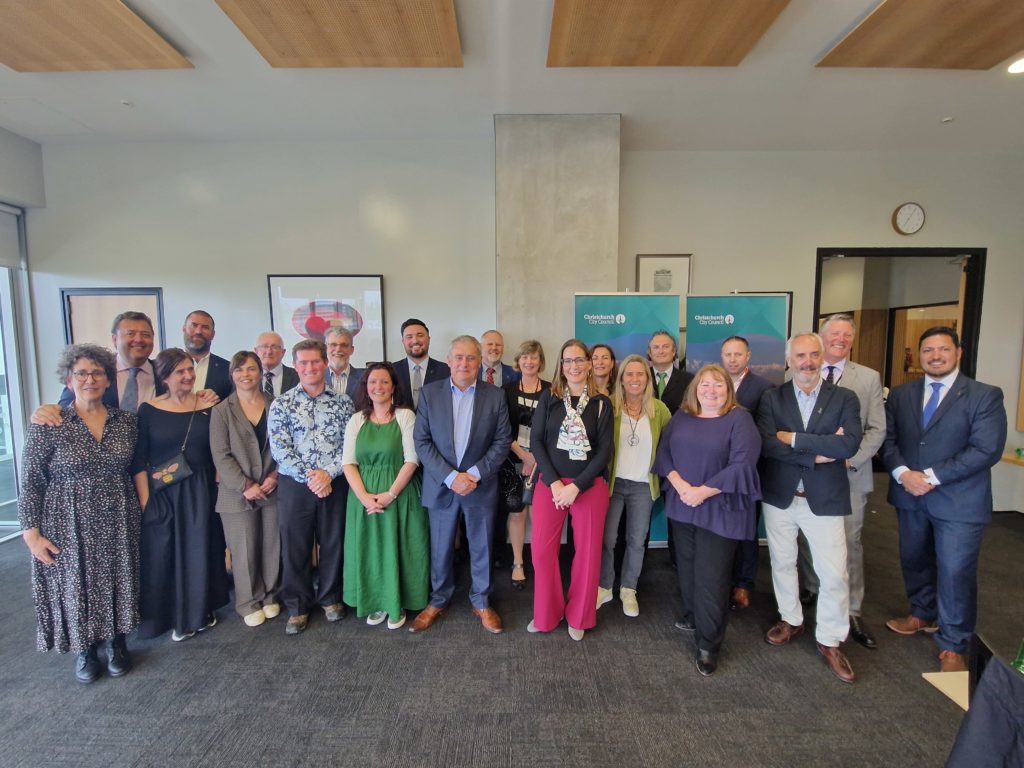
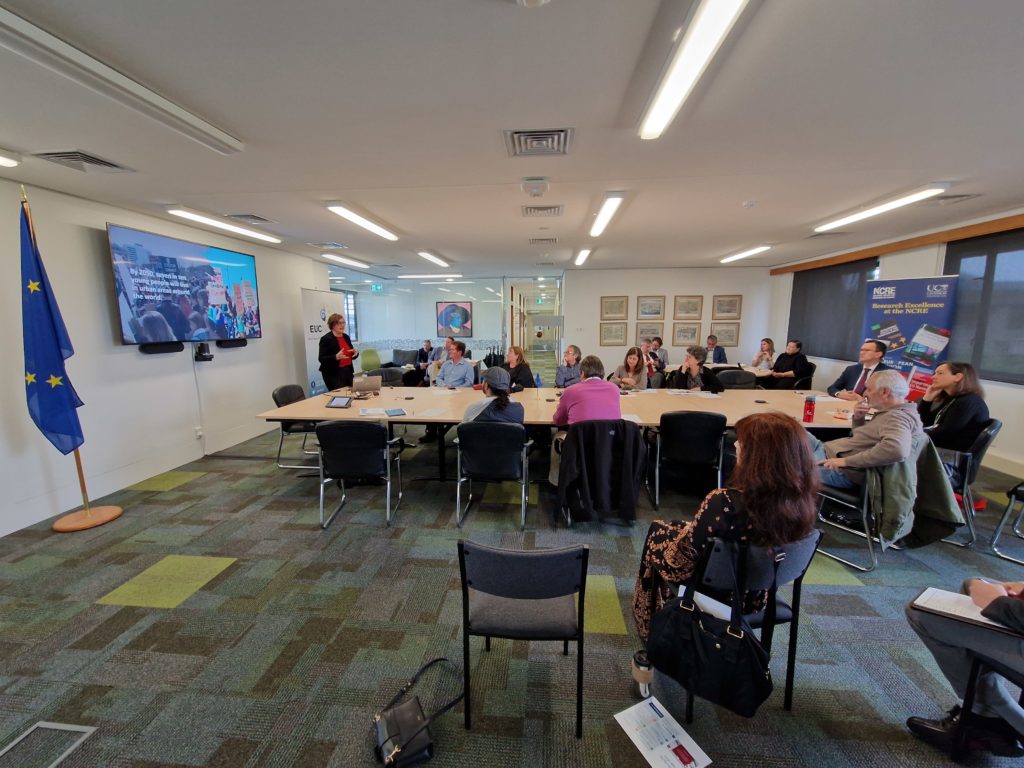
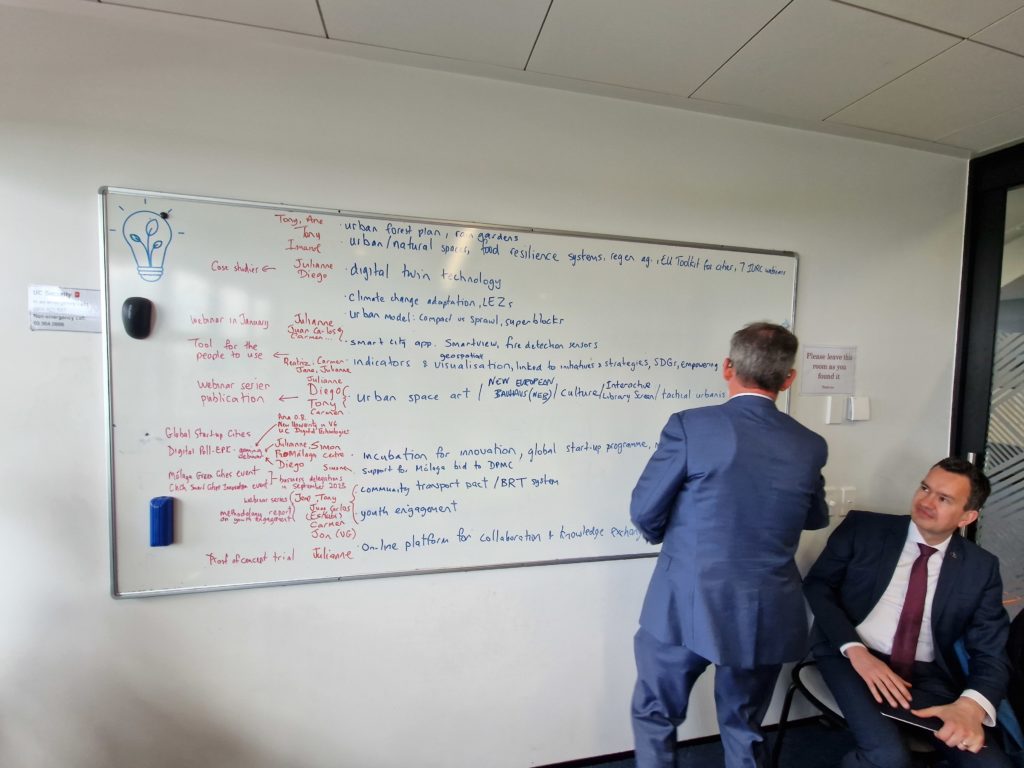
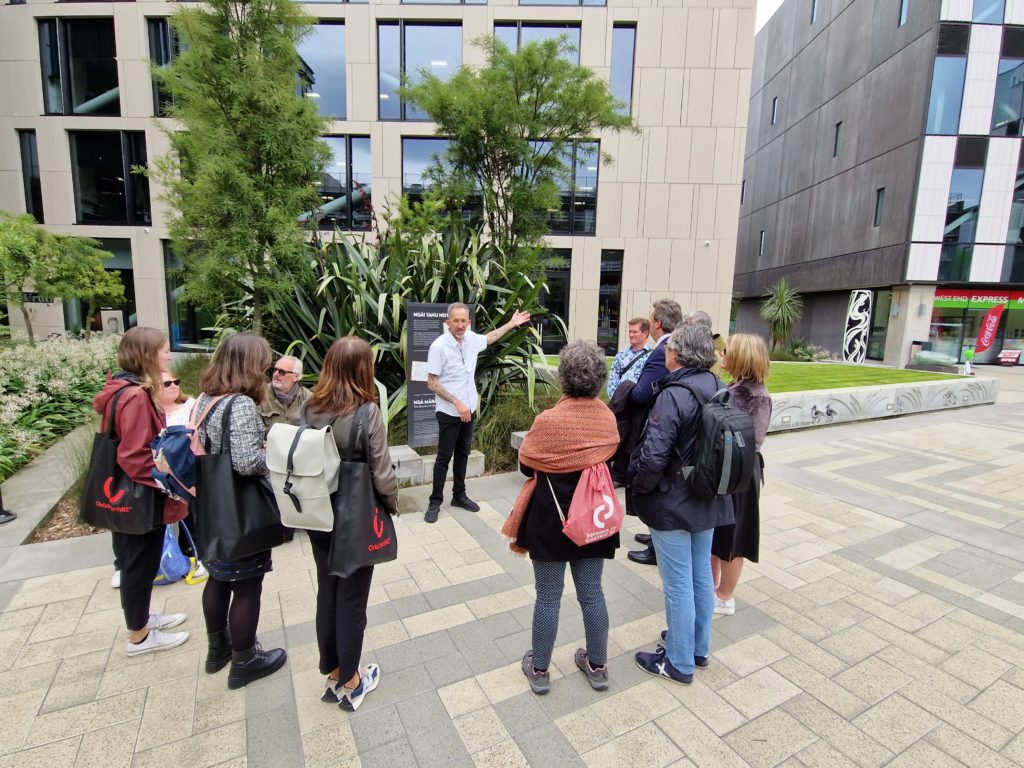
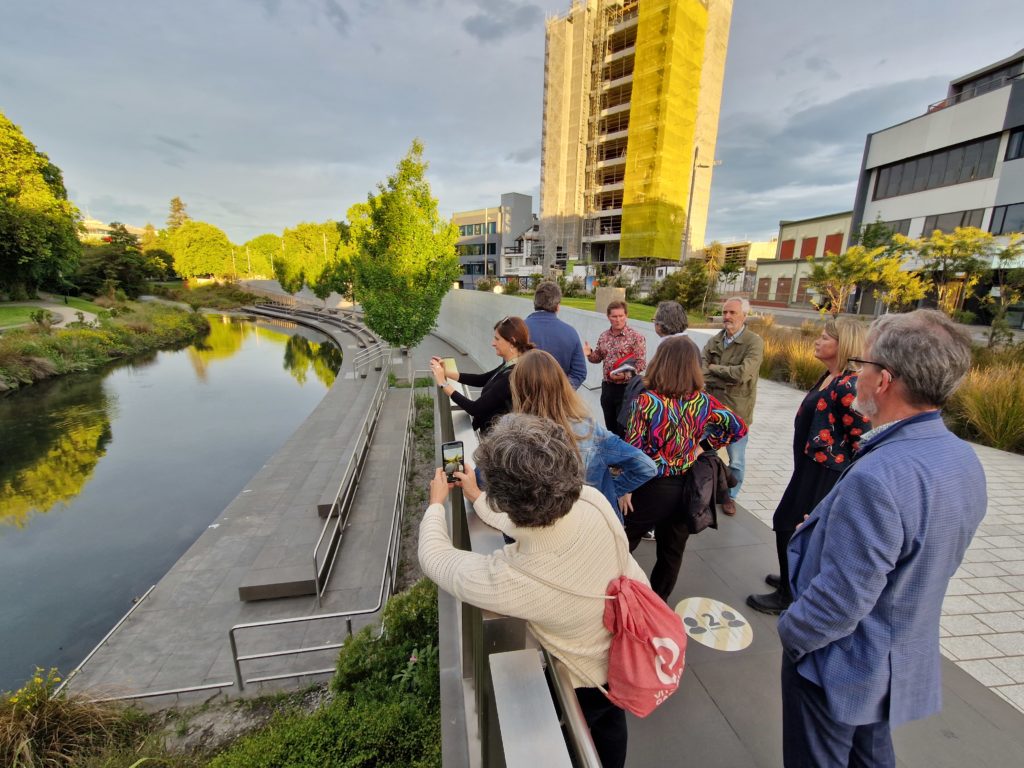
Technical meetings started at the Christchurch City Council (CCC) offices. Jane Morgan, Team Leader Coastal Adaptation at CCC, introduced the impact of the 2010-2011 earthquakes on the wellbeing of Christchurch citizens as well as the challenges and opportunities resulting from the events. She and Katy McRae also explained Christchurch’s citizens’ engagement legislation and tools, an area for cooperation with Málaga and Vitoria Gasteiz. Experiences in engagement with children and young people were of high interest to the European delegates. Tony Moore, Principal Advisor for Climate Resilience, Strategic Policy and Resilience at CCC, introduced Christchurch’s strategies for the development of green/public spaces, cycleways and circular economy. Julianne Hughey, Initiatives Lead for Smart Christchurch, introduced the city’s smart city strategy and the innovative solutions “SmartView” and the “Greenhouse Gas Emissions Tracker”. The Smart Christchurch programme was established in 2016 to deliver rapid proof of concepts to test innovative approaches and technologies that support the Council’s goals for the city and to support the wider innovation ecosystem.
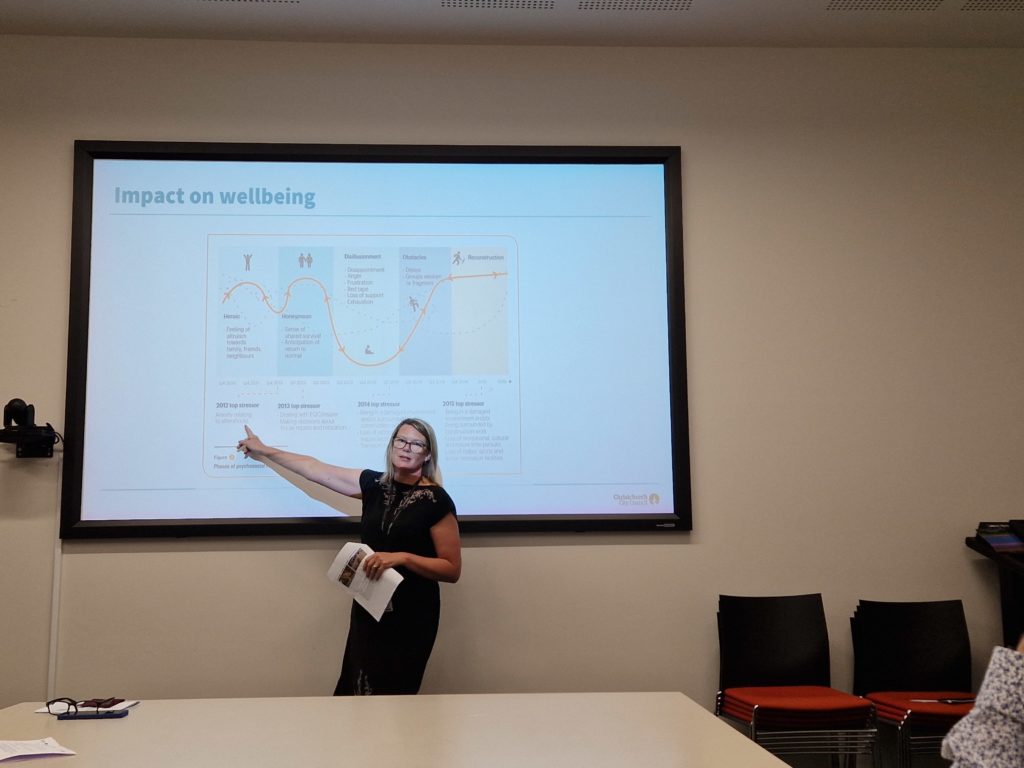
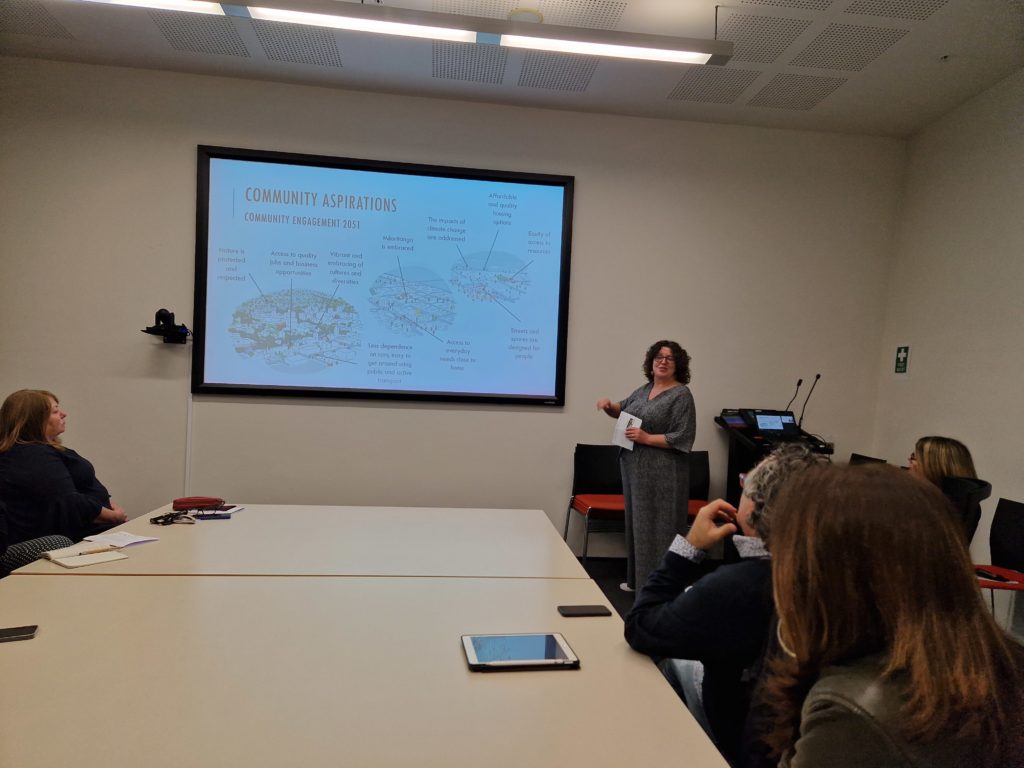
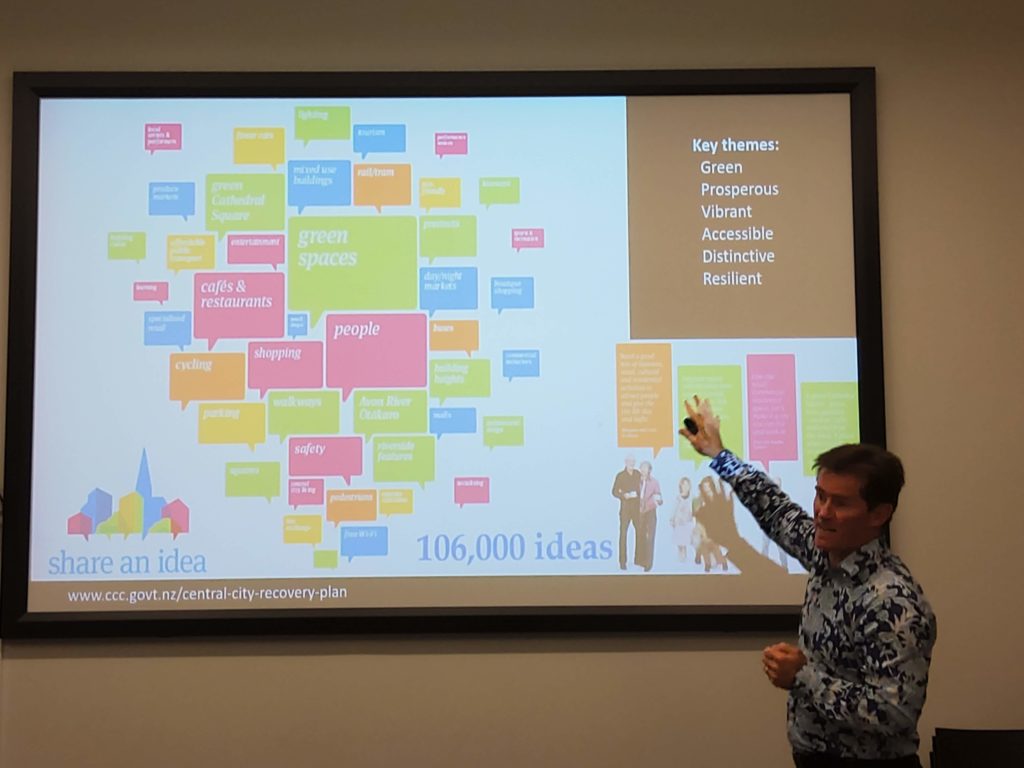
Anna Elphick, Principal Strategy Advisor at Greater Christchurch Partnership, introduced the citizens’ engagement results (“community aspirations”) as well as the challenges to urban development (population growth/change, car dependency, economic performance and environmental impact). She also introduced the urban growth partnership and main ransüport initiatives in the city. Simon Anderson, Regional Growth Manager at ChristchurchNZ, explained the startup ecosystem and innovation sectors including Aerospace and Biotech. He also arranged a visit to the start-up incubator The Ministry of Awesome.
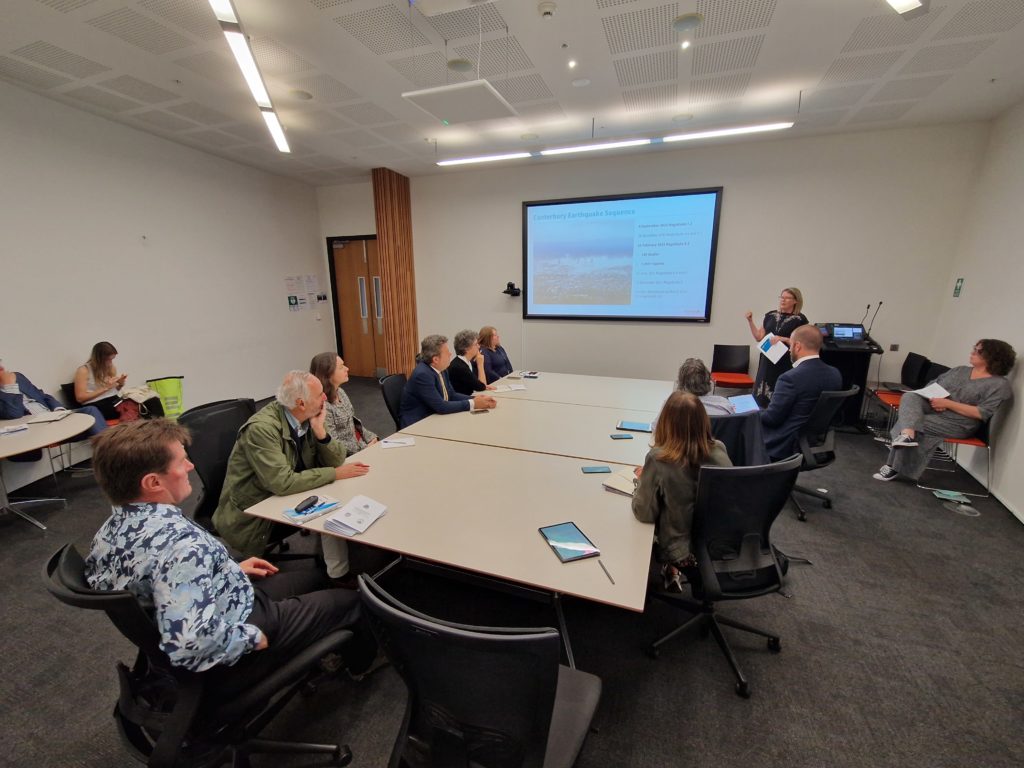
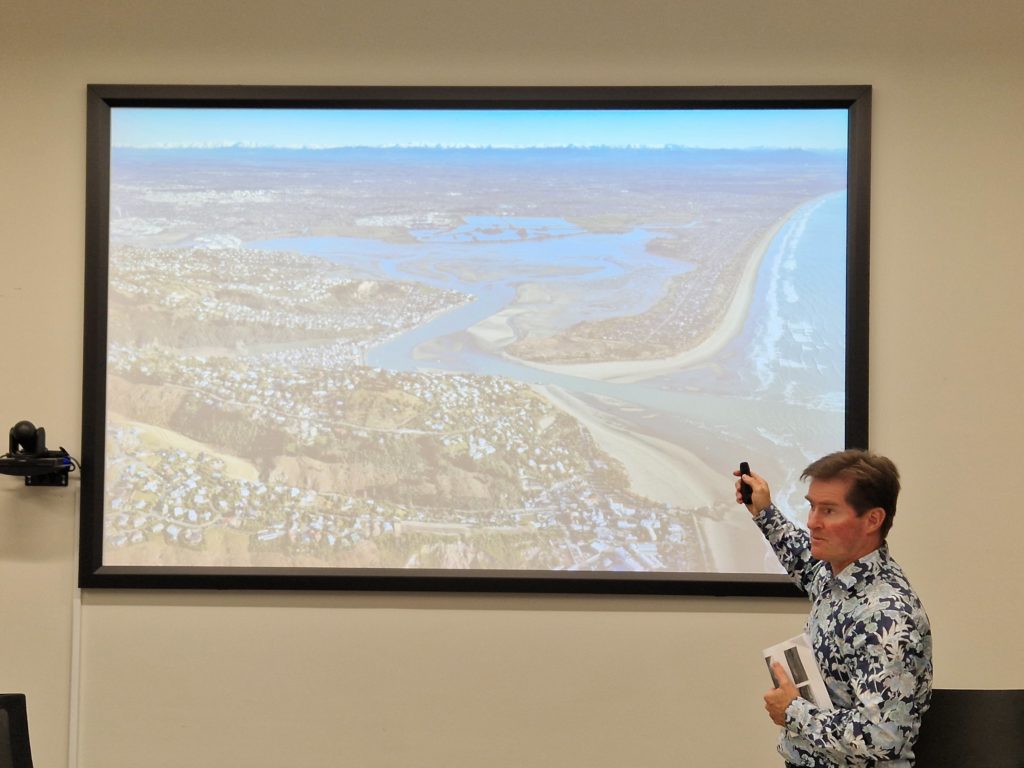
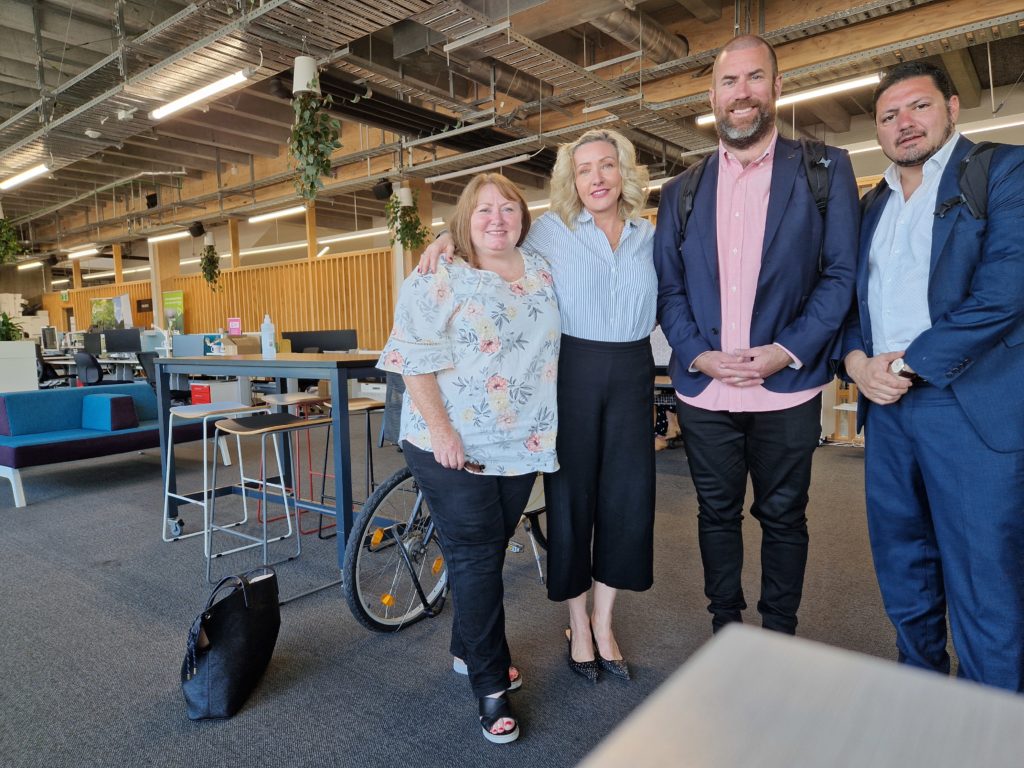
Christchurch’s experiences in community-led place-making and tactical urbanism were one of the most interesting areas for the European participants. Meetings were held with The Gap Filler, an NGO which has implemented the “Adding life into vacant spaces” project, which tested creative, social activities for public spaces in a low-cost, low risk and community-lead way. The idea of filling spaces with life and activity is important for any city and can apply to outdoor spaces (e.g. public spaces, vacant sites and walls) as well as indoor spaces (e.g. buildings or shops waiting for a tenant). Dr. Ryan Reynolds – from The Gap Filler – introduced delegates to the Dance-o-Mat and Good Spot Carpark best practices. European delegates were also able to visit the library of Christchurch, where they learned about innovative, interactive solutions for citizens, including a city story-telling screen.
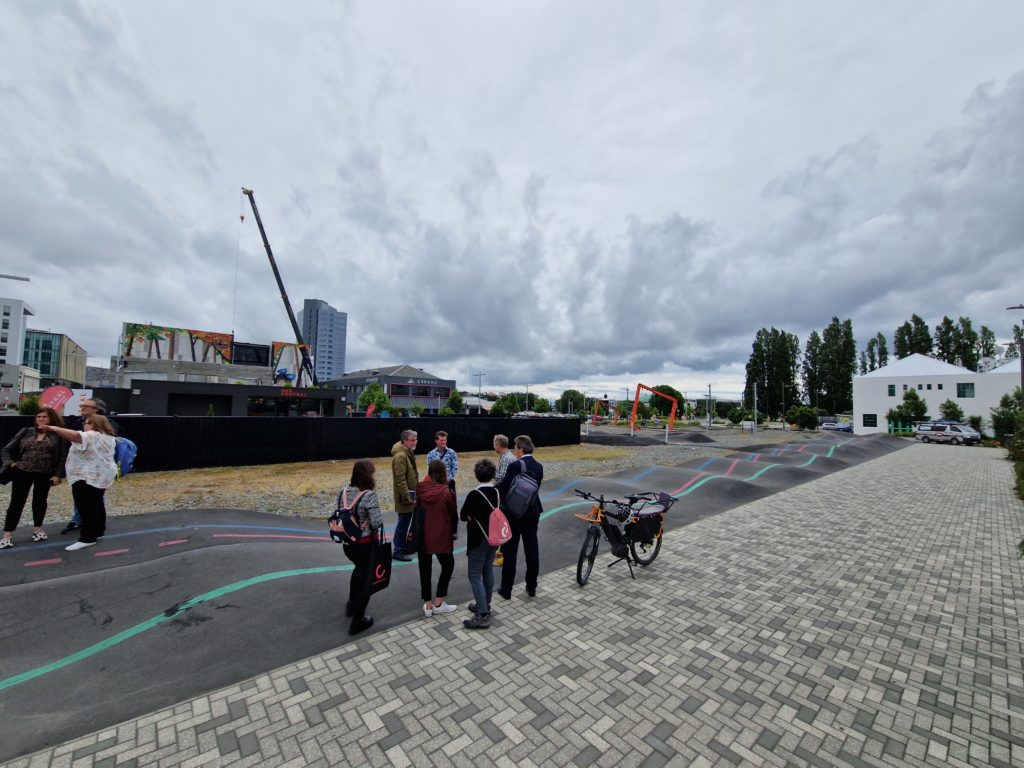
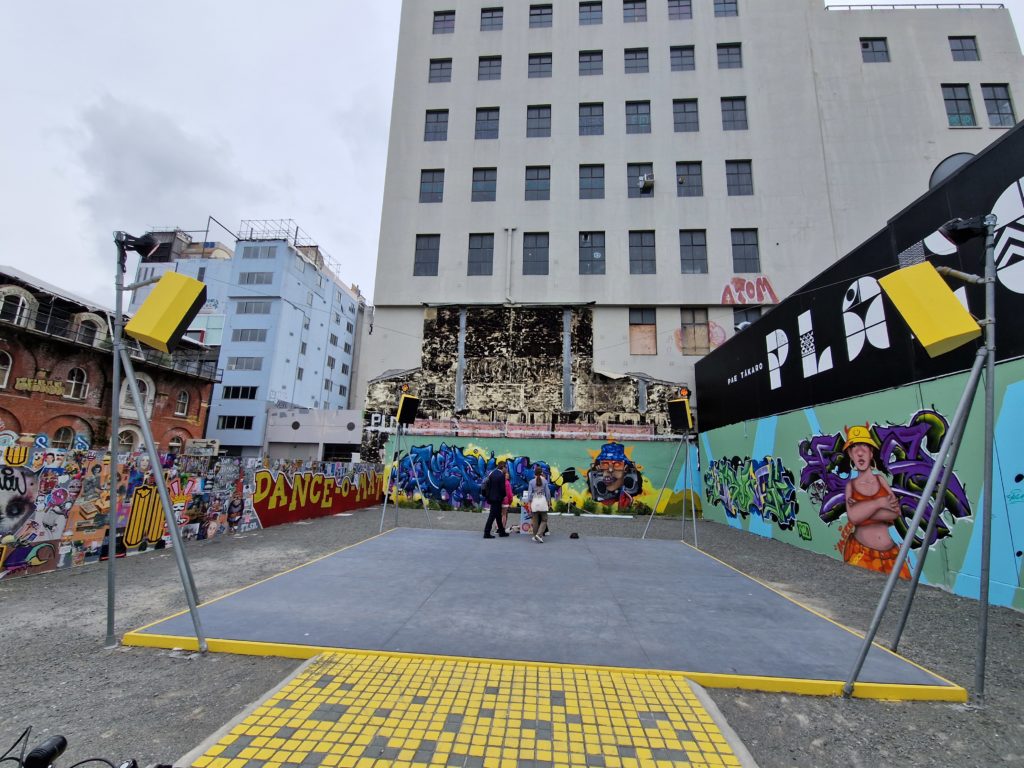
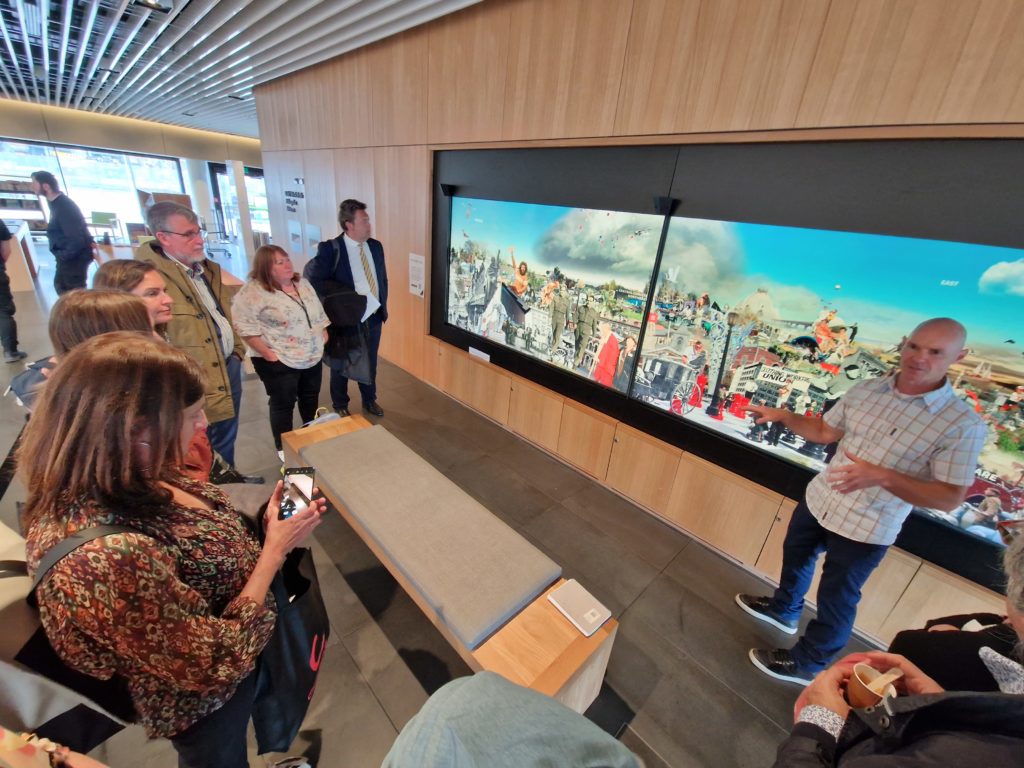
Meetings with the business sector included the start-up incubator Ministry of Awesome, Enterprise Precinct and Innovation Campus (EPIC) as well as at Fabrum, a leading company in the hydrogen energy field.
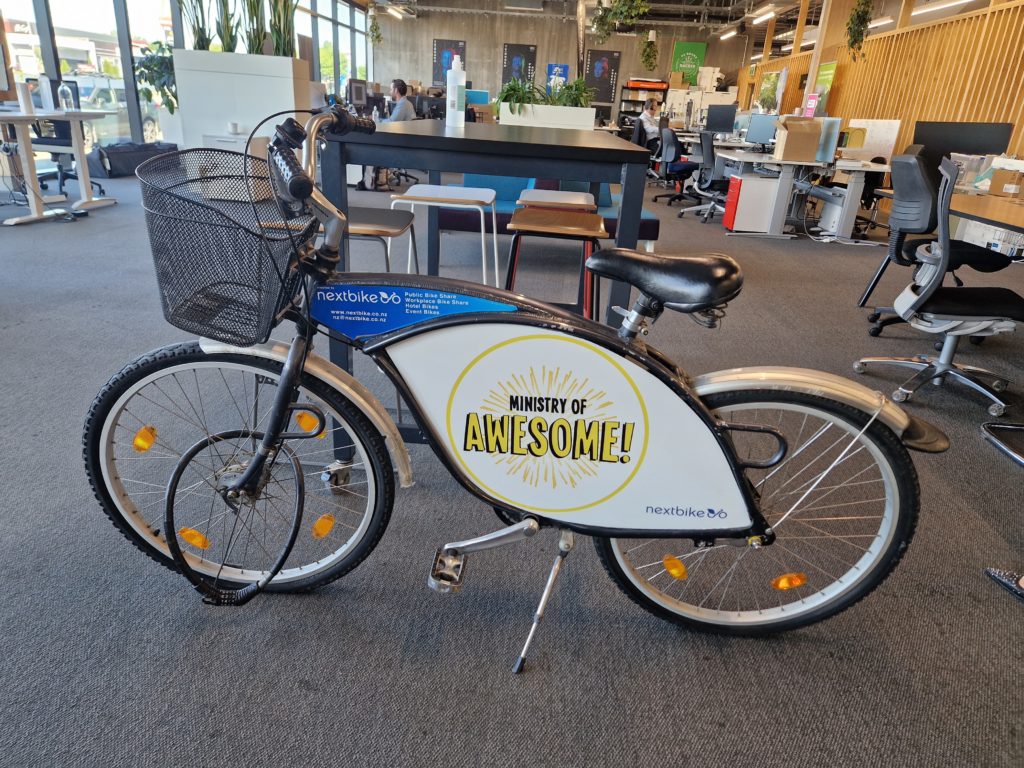
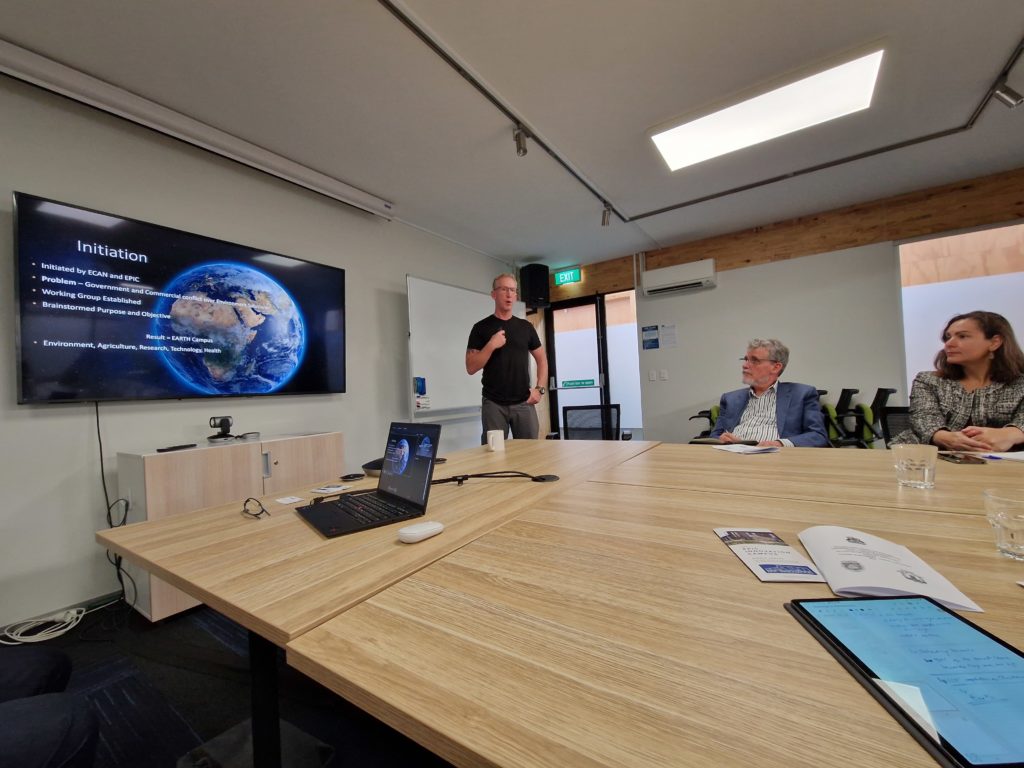
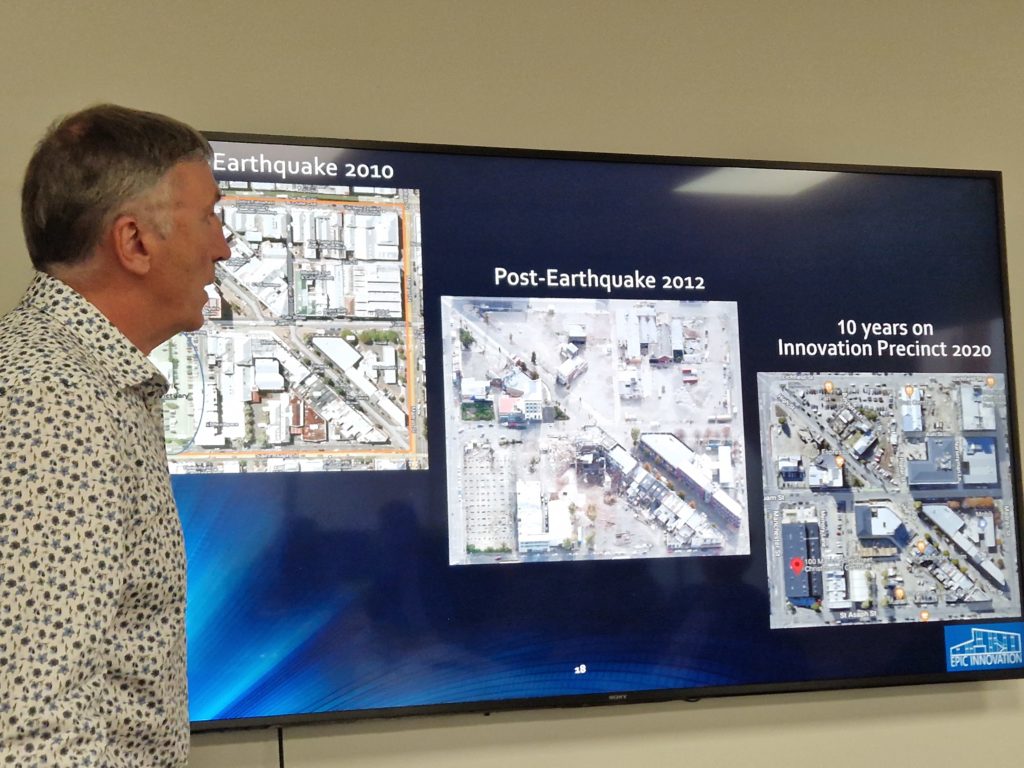
Delegates from Vitoria-Gasteiz also participated in a citizens’ dialogues session with the New Zealand Minister of Climate Change, James Shaw, and Christchurch City Councillor, Sara Templeton.
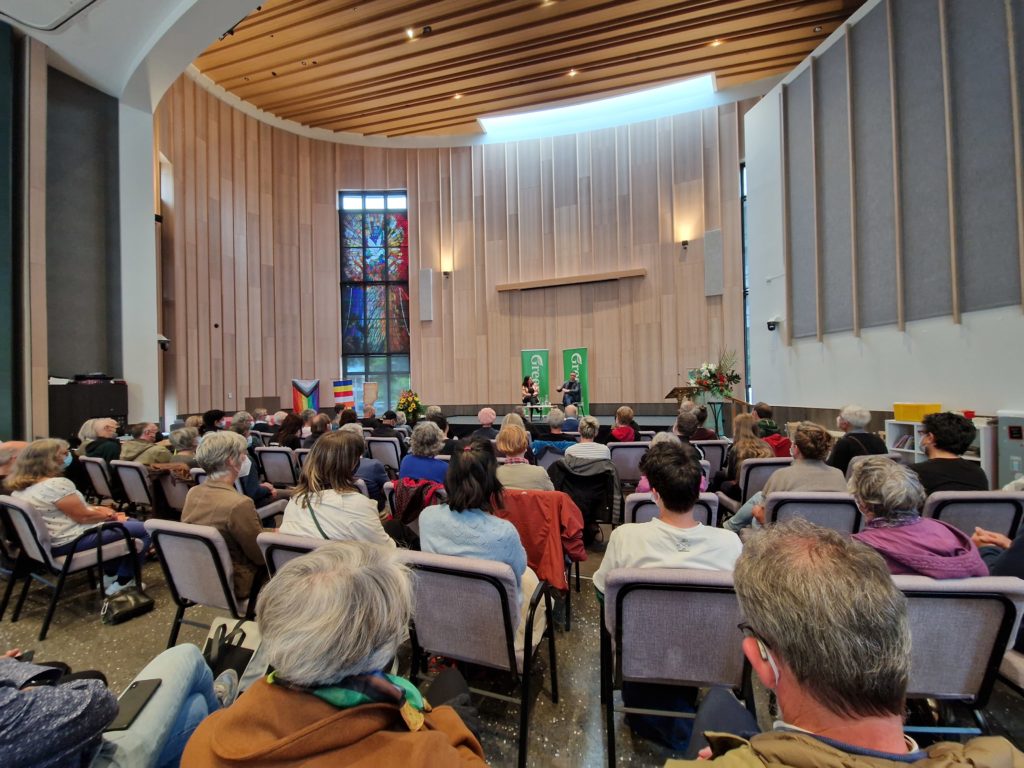
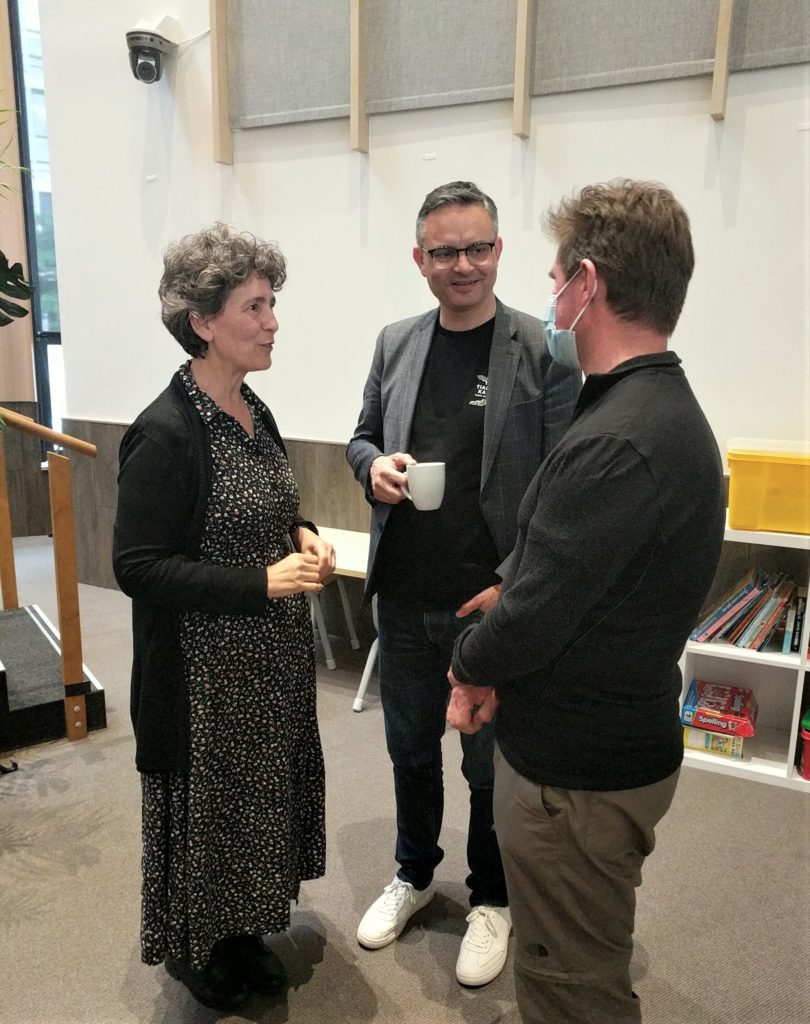
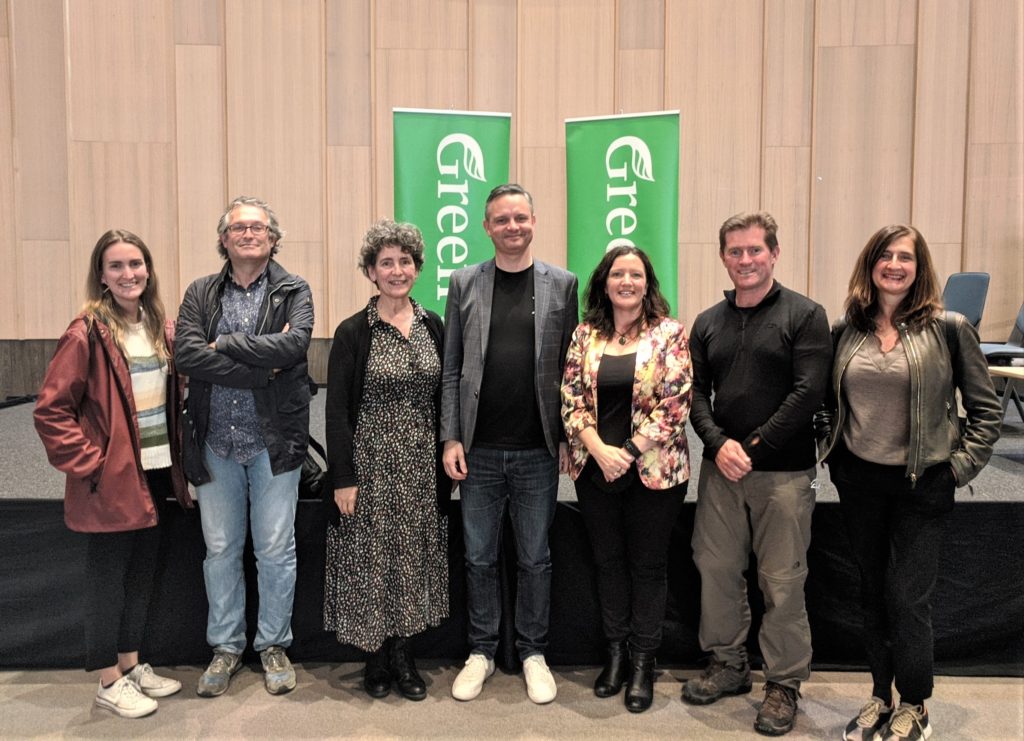
Although the three cities have very different urban models and administrative competencies, they all have common features with regard to citizen engagement. The cities agreed to involve especially the youth and the art in the areas of climate action and urban renewal. Malaga and Christchurch agreed to establish direct linkages among universities in the areas of innovation ecosystems and urban development. During the closing session, the IURC team guided participants to develop a matrix summarising concrete actions, responsibilities and deadlines. They agreed to have a follow-up online meeting in December 2022 to prepare the Urban Cooperation Action Plan.
